English Edition

- By CNI
- Category: English Section
- Hits: 67
CNI News
12 February 2026
Military and political analysts are sharing their perspectives on how the Myanmar military (Tatmadaw) might carry out operations to reclaim lost territories under the new government, which is expected to emerge after the convening of parliament (Hluttaw) in March 2026.
Colonel Khun Okkar, Chairman of the Pa-O National Liberation Organization (PNLO-NCA/S)—a signatory of the Nationwide Ceasefire Agreement—told CNI News that while he does not believe the new government and parliament will prioritize military action, if they do, they are likely to focus on the central regions of Myanmar.
"There are two possibilities. They might negotiate with those who have seized territories. For instance, the retrieval of Hsipaw and Lashio in the north was achieved through non-military means; it was done through negotiation. Therefore, they might try to negotiate or make deals. However, in places like Magway and Sagaing, where negotiations or deals may not be possible, military intensity could increase. On the other hand, I don't think the situation is conducive to escalating military operations in Rakhine or Kachin states. I believe they will prioritize military actions in the central heartland—Magway, Sagaing, Mandalay, and Bago. They will likely approach ethnic regions using a different method. They cannot conduct military operations across the entire country simultaneously, so they are expected to prioritize the central regions," he said.
Military and political observers noted that although clashes between the Myanmar military and revolutionary forces plus some ethnic armed organizations continue after the completion of the three-phase election, the intensity is lower than in the pre-election period.
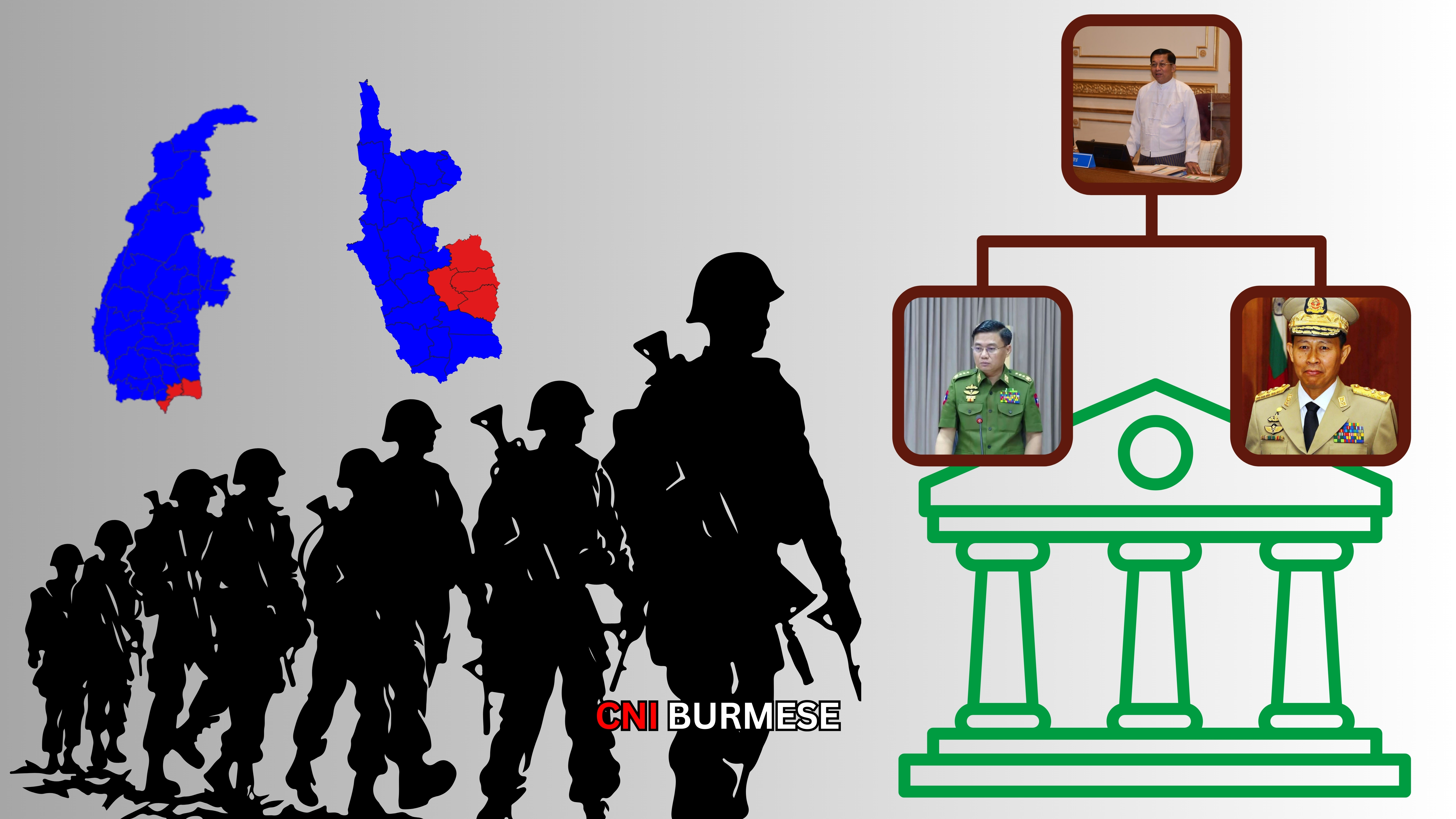
Armed group members and Military leaders seen
While the Myanmar military has regained some lost territories through Chinese mediation, a significant number of territories remain outside their control.
A political analyst told CNI News that if the current Commander-in-Chief, Senior General Min Aung Hlaing, becomes President, the military situation under the new government will depend on the vision of either the new Commander-in-Chief or Senior General Min Aung Hlaing himself.
"He is currently focusing on major cities like Naypyidaw, Mandalay, Sagaing, and Monywa, aiming to crush or push away the forces threatening these areas and their surroundings. This doesn't strictly depend on the incoming President. Since we began practicing the 2008 Constitution in 2010, the President has taken the administrative role while the Commander-in-Chief handles military duties. Therefore, it will depend on the vision of either the new Commander-in-Chief or the former one, U Min Aung Hlaing," the analyst said.
Currently, during the pre-parliamentary period, the Union Consultative Council Law has been enacted. Additionally, the Martial Law orders in 63 townships, which have been under a state of emergency since July 31, 2025, have been extended for another 90 days.
The 63 townships under Martial Law include areas controlled by ethnic armed organizations as well as those partially controlled by forces under the National Unity Government (NUG).
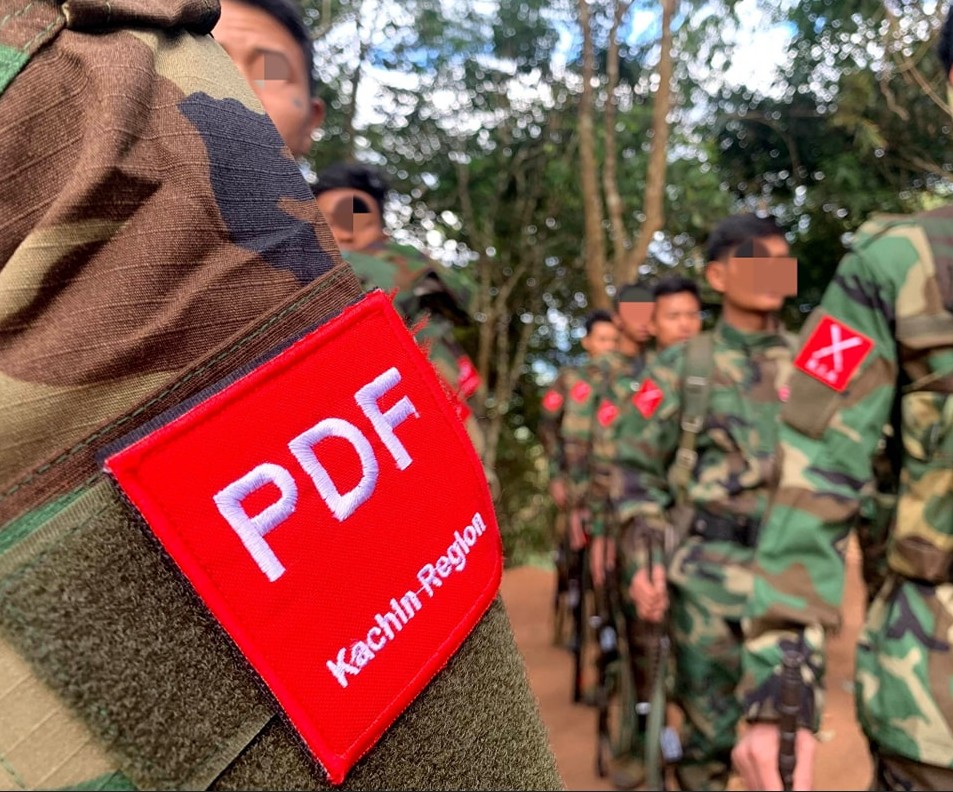
KIA-PDF joint forces seen
These townships include: Kachin State: Sumprabum, Shwegu, Injangyang, Sawlaw, Chipwi. Kayah (Karenni) State: Shadaw, Hpasaung, Mese.
Karen State: Kawkareik, Kyainseikgyi. Chin State: Kanpetlet, Thantlang, Paletwa, Tonzang, Mindat, Matupi, Falam.
Sagaing Region: Tigyaing, Kawlin, Pinlebu, Khin-U, Wetlet, Kani, Depayin, Pale, Indaw.
Magway Region: Pauk, Myaing, Saw, Tilin, Yesagyo. Mandalay Region: Mogok, Singu, Ngazun.
Rakhine State: Ramree, Pauktaw, Ponnagyun, Rathedaung, Gwa, Maungdaw, Buthidaung, Kyauktaw, Minbya, Myebon, Mrauk-U, Thandwe, Ann, Taungup.
Shan State: Namtu, Mabein, Kutkai, Namkham, Hsenwi, Kunlong, Namhsan, Mantong, Hopang, Laukkai, Konkyan, Momeik, Kyaukme, Hsipaw, and Mong La.

- By CNI
- Category: English Section
- Hits: 46
CNI News
12 February 2026
A grand Space-Themed Painting / Cartoon / Poster Competition will be held at the Space Museum (Yangon), located in People’s Square, Yangon, Myanmar, from February 27 to March 3, 2026.
The competition is jointly organized by the Yangon Region Government, the Myanmar Space Agency, and the Space Museum (Yangon). More than 6,000 basic education students are expected to participate.
The competition topics are as follows: Primary Level: “Space Heroes”
Middle School Level: “Exploring the World of Space”. High School Level: “Future Space Technology”

The painting and poster competitions will take place from 8:00 a.m. to 11:00 a.m., while the cartoon competition will be held from 8:00 a.m. to 10:00 a.m.
Students who wish to participate must register through their respective schools, with the application deadline set for February 19.
Winners will receive medals and certificates of honor. In addition, all participants will be awarded certificates and commemorative gifts.
Prize money will be awarded as follows:
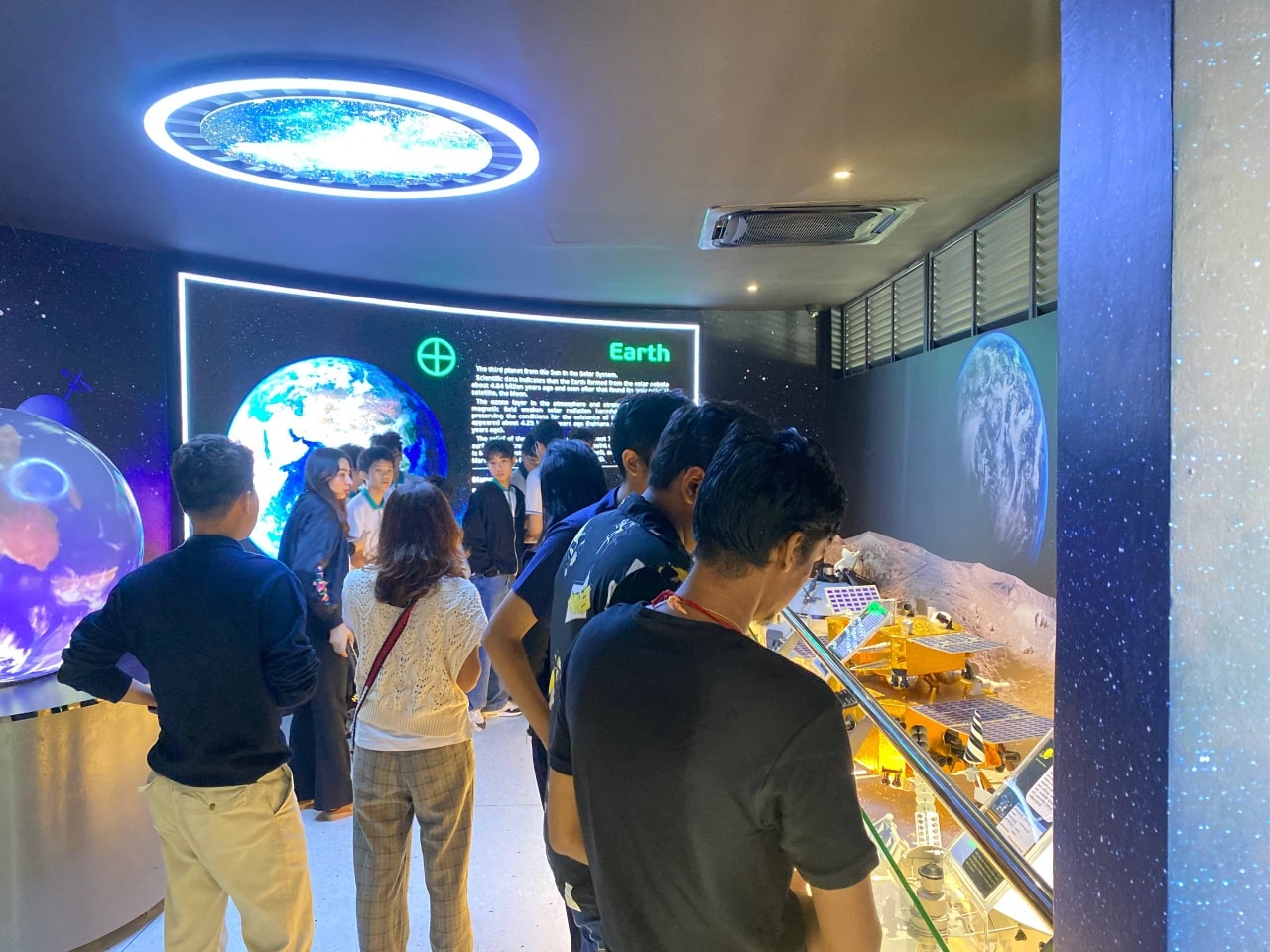
Primary Level: First Prize: 500,000 kyats,Second Prize: 400,000 kyats,Third Prize: 300,000 kyats,Special Prizes: 200,000 kyats each (10 awards).
Middle School Level: First Prize: 700,000 kyats,Second Prize: 600,000 kyats,Third Prize: 500,000 kyats, Special Prizes: 300,000 kyats each (10 awards).
High School Level: First Prize: 1,000,000 kyats, Second Prize: 900,000 kyats,Third Prize: 800,000 kyats,Special Prizes: 500,000 kyats each (10 awards).

- By CNI
- Category: English Section
- Hits: 90
CNI News
11 February 2026
The Kachin Independence Army (KIA) will carry out the “Ka-Thone-Lone” (Kanbalu–Kawlin–Katha) military operation in Sagaing Region and, after securing control, will take control of the entire northern and lower parts of the region, said KIA Deputy Commander-in-Chief Lt-Gen Gun Maw.
He made the remarks during an online speech at the 65th Kachin Revolution Day ceremony held in Texas, United States, on February 5, 2026.
Currently, efforts are underway to stably control the entire northern area, including Kachin units, Chin units, Naga units, and the “Ka-Thone-Lone” areas—Kanbalu, Kawlin, and Katha—in upper Sagaing Region. Lt-Gen Gun Maw said that once the upper region is secured, the lower region can be controlled easily.
He stated: “We are placing special emphasis on Chin State. This is because we are working to stabilize our Kachin units, Naga units, Chin units, and the Ka-Thone-Lone areas in upper Sagaing Region. We believe this is achievable. Once the entire upper northern region becomes stable, we will be able to control the lower region easily. That is our military objective. We believe the resources of Chin State can contribute to nationwide success. Therefore, we are striving vigorously for the liberation of Kachin State and the whole of Chin State.”
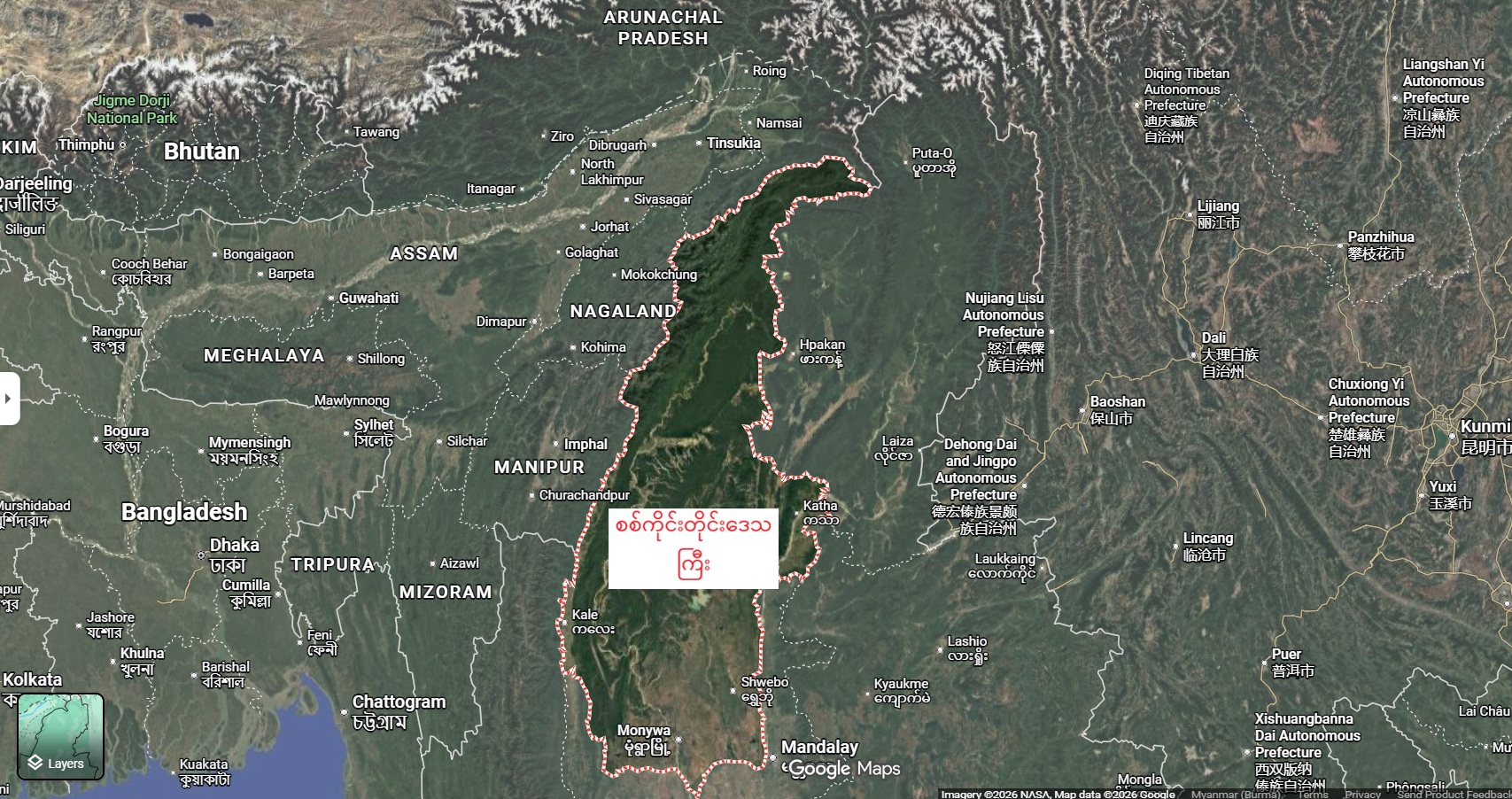
A view of Sagaing Region
On February 1, 2021, the Myanmar military ousted the NLD government, alleging that it had attempted to form a government without resolving voter list disputes from the 2020 general election. This led to nationwide protests and armed resistance.
KIA leaders previously met with a Chinese representative, and China reportedly pressured them to avoid fighting. However, KIA said that clashes would be unavoidable and that they would cooperate with pro-democracy forces. Lt-Gen Gun Maw stated that Sagaing Region is the “gate to our compound,” and for Kachin security, they must control Sagaing Region.
He said: “The Chinese government told us not to launch offensives. We cannot avoid it. We must fight together with democratic forces. Especially in Sagaing Region, which is the gateway to our compound, we must guard against the enemy. We must ensure the security of the gateway to Kachin State through the forces present in Sagaing Region. We said this on February 2.”
Currently, KIA is supplying weapons and ammunition to the Arakan Army (AA), the Chin National Front (CNF), Naga armed groups, People’s Defense Forces (PDF), and PDFs operating in Sagaing Region. They are conducting the Ka-Thone-Lone operation and other offensives to gain control of Sagaing Region.
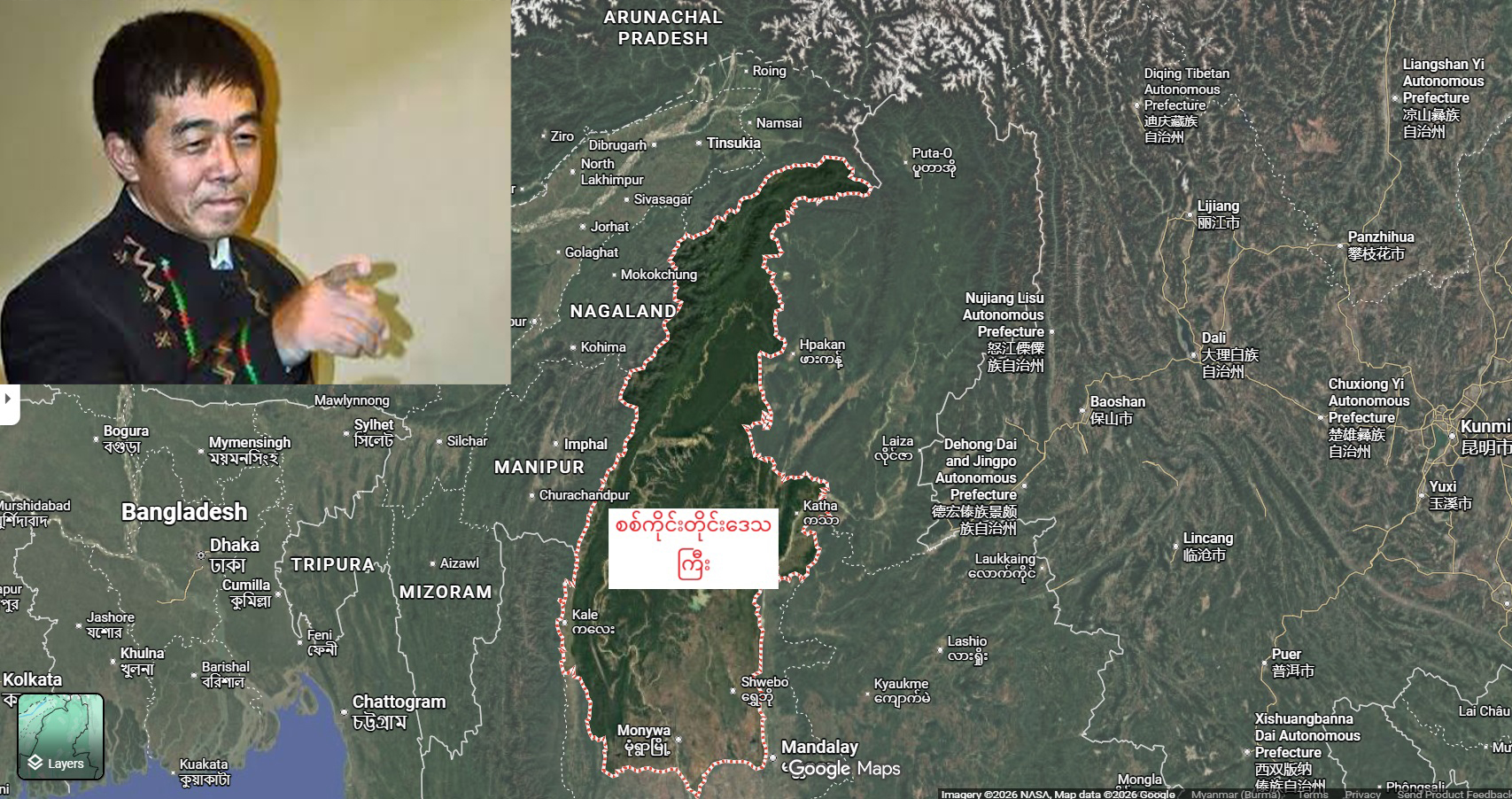
KIA leader Lt-Gen Gun Maw and a view of Sagaing Region
After KIA-PDF forces gained control of Shwe Pyi Aye, Pinlebu, and Indaw towns in Sagaing Region, they are now attacking to capture and control towns such as Homalin, Kawlin, Katha, Wuntho, Tamu, Naga areas, Pale, Monywa, Hpaungbyin, Yinmabin, Shwebo, Kale, Htigyaing, and Banmauk.
KIA is attempting to connect Kachin State with Sagaing Region, Chin State, and Rakhine State to establish control across Myanmar’s northwestern region. It is also exerting military pressure to control Magway Region and Mandalay Region (lower region).
If KIA succeeds in controlling the entire northwestern region of Myanmar, it would gain access from a landlocked area to a seaport, enabling diplomatic relations with Western countries and Europe.
Subsequently, KIA could potentially implement military, political, economic, and even secession-related plans.
Lt-Gen Gun Maw also recalled that during a 2018–2019 meeting with Daw Aung San Suu Kyi in Yangon, he had stated that they could not promise not to secede. He reiterated this during the Kachin Revolution Day ceremony held on February 5, 2026.

- By CNI
- Category: English Section
- Hits: 110
CNI News
11 February 2026
Domestic and international observers are closely watching what role Senior General Min Aung Hlaing might assume under the new government set to emerge in Myanmar this coming April.
Currently, Senior General Min Aung Hlaing holds the positions of Acting President, Commander-in-Chief of the Defense Services, and Chairman of the State Security and Peace Commission.
Following the completion of the 2025 General Election and the enactment of the Union Consultative Council Law on February 3, 2026—just before the formation of the new government in April—questions have arisen: Will he serve as President? Will he remain Commander-in-Chief and Chairman of the Council? Or will he take on both the Presidency and the Council Chairmanship?
Political analyst U Kyaw Htet told CNI News that Senior General Min Aung Hlaing could lead the government by assuming the Chairmanship of the Council without needing to relinquish his current post as Commander-in-Chief.
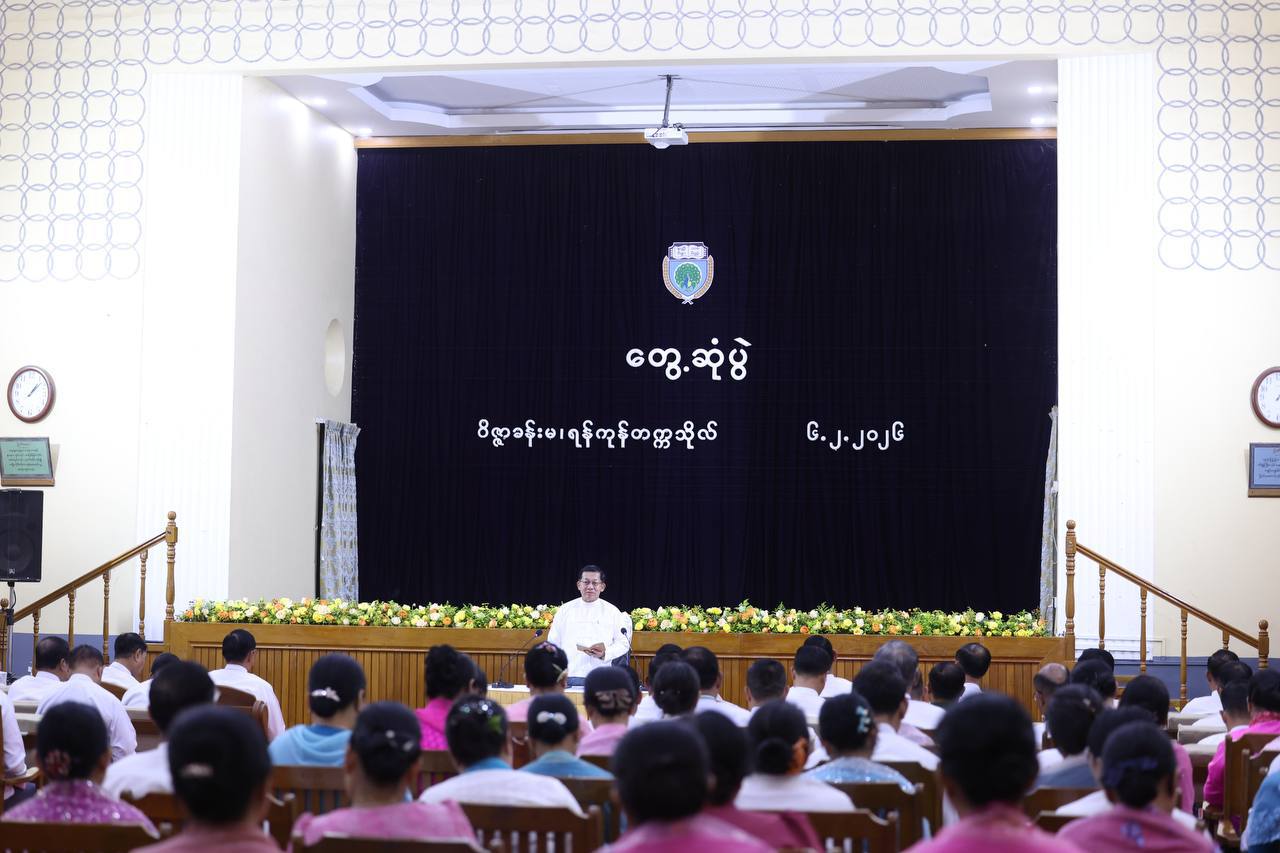
Senior General Min Aung Hlaing
"He can take the Chairman position of the Union Consultative Council without giving up his role as Commander-in-Chief. This could be a political 'exit strategy' given the current situation. Since the military's role remains vital and 63 townships are still declared unstable, the military’s duties are not yet complete. We anticipate that he might continue as Commander-in-Chief while also serving as Council Chairman to work alongside the new government. For the Presidency, he might appoint someone he trusts—perhaps the current Prime Minister, U Nyo Saw, as President."
The law stipulates that the Union Consultative Council: Shall consist of at least five members. Is formed by the President.
Will be supported by the Office of the President for administrative needs.
Some analysts suggest a different configuration: Senior General Min Aung Hlaing may become the President in the new government, appointing Vice Senior General Soe Win as Chairman of the Consultative Council and General Ye Win Oo as Secretary, while appointing a new Commander-in-Chief.
Observers have drawn comparisons to the 2015 post-election period when the NLD enacted the State Counsellor Law for Daw Aung San Suu Kyi to hold a leadership role. They point out that Sr-Gen Min Aung Hlaing could similarly use the Council Chairmanship alongside his military rank to govern the administration from a position of influence.
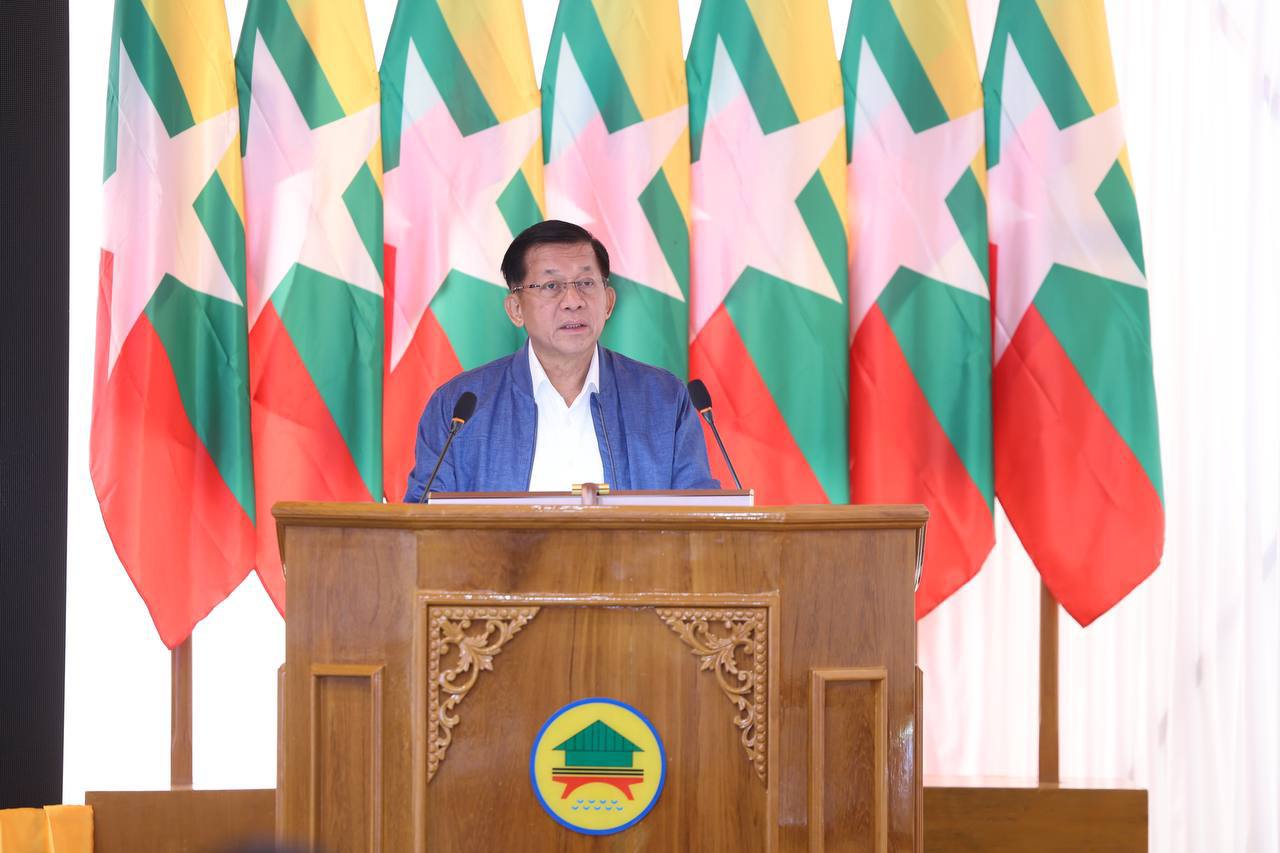
Senior General Min Aung Hlaing
Dr. Aye Maung, Chairman of the Arakan Front Party (AFP), told CNI that there is a high probability of the Senior General becoming the President.
"To achieve stability in the coming five-year term, it seems necessary to implement a 'Team Work' approach based on constitutional provisions. This is likely why the Union Consultative Council was established just before the formation of the post-election government. Generally speaking, once the government is formed, power will be transferred from the current administration. Since the President appoints the Council, I estimate the Senior General has a high percentage of becoming the President. A representative from the military bloc in parliament could then emerge as a Vice President."
The Union Consultative Council's term will coincide with the President's term. The President has the authority to appoint the Chairman and Secretary, delegate powers, and issue necessary bylaws and orders through the President's Office.
The 2025 General Election was held in three phases from December 28, 2025, to January 25, 2026. Parliament (Hluttaw) is expected to be convened in March, with the new government formed in April. Senior General Min Aung Hlaing has stated that state power will be transferred to the winning party.

- By CNI
- Category: English Section
- Hits: 63
CNI News
11 February 2026
In the current Myanmar political landscape, where armed conflicts have yet to cease, new policies must be established to facilitate peace negotiations with Ethnic Armed Organizations (EAOs), Colonel Khun Okkar, Chairman of the Pa-O National Liberation Organization (PNLO-NCA/S)—a signatory to the Nationwide Ceasefire Agreement (NCA)—told CNI News.
He stated that China's efforts alone are not enough to negotiate peace with ethnic armed groups. He noted that in politics, nothing is "impossible," and everything is "possible," suggesting that if the opportunity to negotiate is granted, peace can be achieved.
Colonel Khun Okkar said, "It is possible if policies that both sides can accept are set. The principles laid down during President U Thein Sein’s era were good. We can hold state-level, union-level, and then nationwide ceasefire talks. By taking a little time with these meetings, separate agreements can be signed with each group. That would make things go smoothly. Of course, there are territorial limits; that depends on the negotiations. Nothing is impossible. In politics, everything is possible. However, negotiation is required, and there are limits. There are limits to how much the Arakan (Rakhine) want or how much the Kachin want. Every group has a desire to negotiate. When negotiating, you can mutually adjust what they want and what you can give. There has to be a 'give and take.' You won't get everything you ask for, but you won't get nothing either. It works both ways. Negotiations are necessary. If the chance to negotiate is given, peace can be achieved."
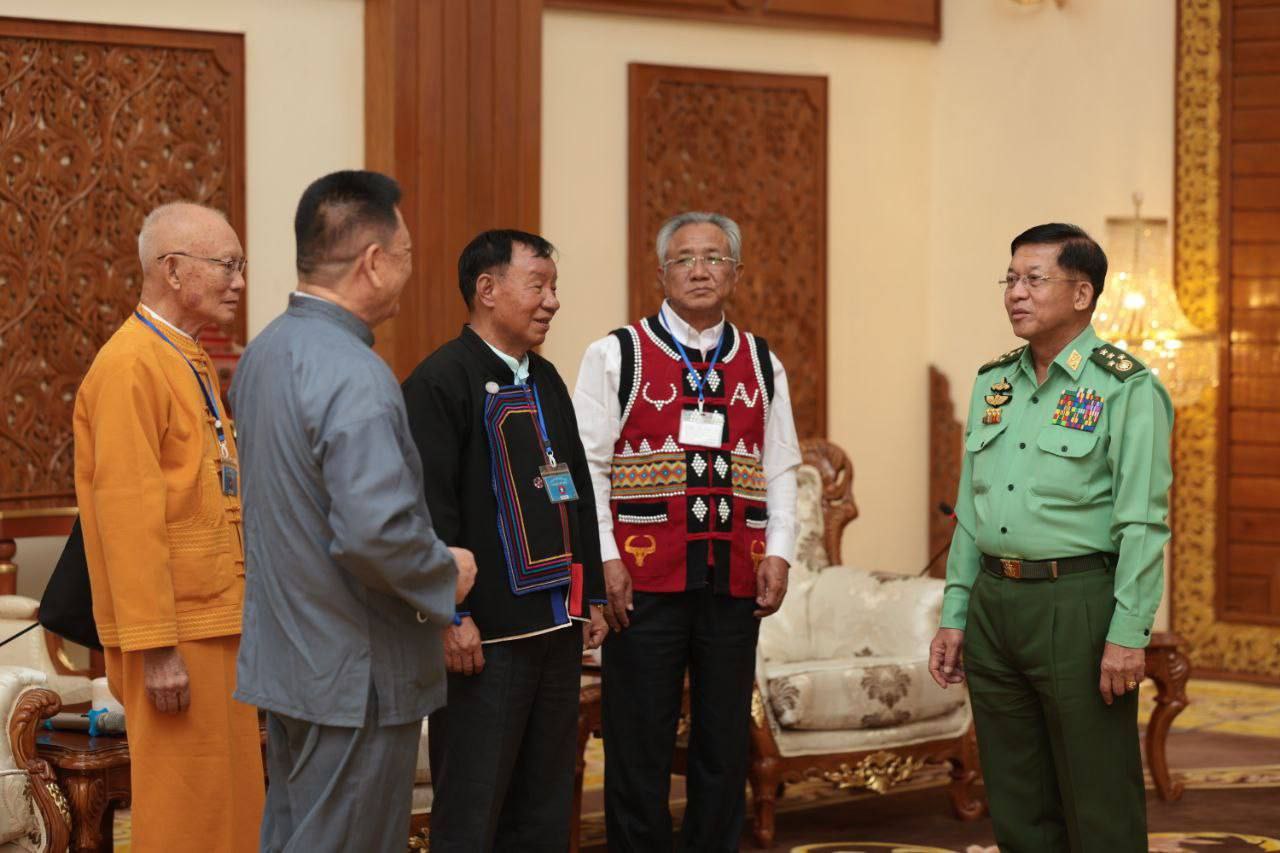
Senior General Min Aung Hlaing and leaders of the NDAA, SSPP, and UWSA.
Currently, the groups that have not yet signed the NCA include the UWSA, NDAA, MNDAA, TNLA, KIA, SSPP, AA, and KNPP.
A political analyst told CNI News that although some ethnic armed groups have declared their withdrawal from the NCA or stated the treaty is void and are engaging in armed struggle, the government appears to continue recognizing them.
The analyst suggested that if the Northern groups study the NCA thoroughly and choose to sign, there could be opportunities for them. However, he noted that if territories are strictly defined only according to the existing Constitution, these groups will not come to the negotiating table.
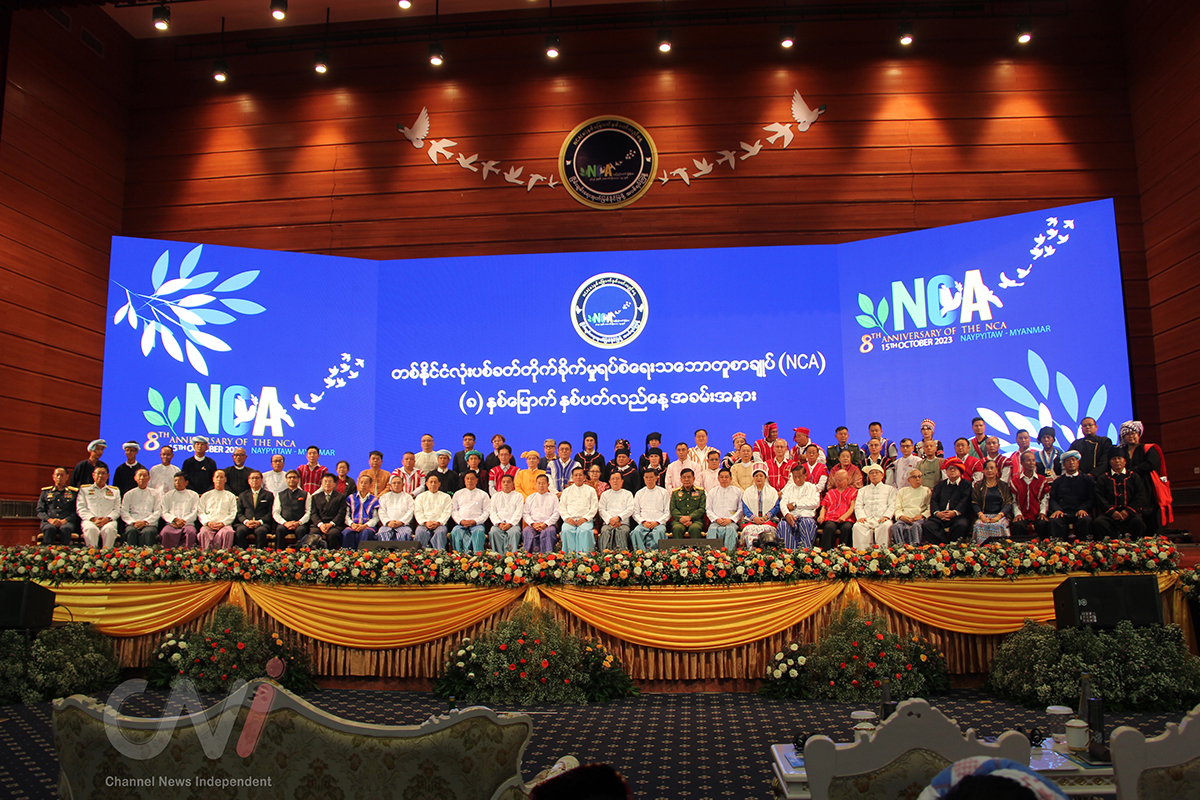
The anniversary ceremony of the NCA.
The political analyst said, "By signing the NCA, they wouldn't have to withdraw from the areas their troops currently control. They would stop the fighting in their current positions and sit at the peace talk table. What I mean is, they are currently in a winning position. According to the NCA, once fighting stops where the troops are stationed, peace is discussed. During those talks, they can discuss granting states or changing the designation of ethnic territories on the map. They need someone to encourage them—for example, if a country like China urges them to try and sign the NCA, and the government side keeps the door open, they might negotiate. If not—if the territory must strictly remain as defined in the original Constitution—the EAOs won't come. There will just be a lull in fighting, but no actual peace. It would be a situation where they fight when they want to and stop when they don't, resulting in a state where there is neither peace nor active combat."
The ethnic armed organizations in Myanmar that signed the Nationwide Ceasefire Agreement (NCA) include the RCSS, DKBA, KNU/KNLA-PC, ALP, PNLO, NMSP, CNF, ABSDF, LDU, and KNU.
However, following the political changes after February 1, 2021, the CNF, ABSDF, and KNU withdrew, claiming the NCA was void. Furthermore, groups like the PNLO, ALP, LDU, and NMSP have split into two factions.

- By CNI
- Category: English Section
- Hits: 69
CNI News
10 February 2026
Senior General Min Aung Hlaing, Chairman of the State Security and Peace Commission, stated that armed organizations are seeking their own interests through the production and sale of narcotics and the illegal extraction of local natural resources.
He made these remarks during a meeting with the Chairman of the Election Commission, the Chairman of the Naypyidaw Council, and Chief Ministers of Regions and States on February 9, 2026.
Senior General Min Aung Hlaing said, "In unstable regions, organizations carrying out terrorist acts with weapons are forcibly seeking self-interest for their own benefit by producing and selling drugs, and illegally extracting natural resources produced in those areas."
He further stated that due to these terrorist organizations, regional instability has occurred, leading to the closure of basic education schools and causing many children to lose their fundamental rights. He added that to ensure the public can fully enjoy peace and stability, terrorist organizations must be suppressed by mobilizing the strength of the Military (Tatmadaw), the Myanmar Police Force, and the public.
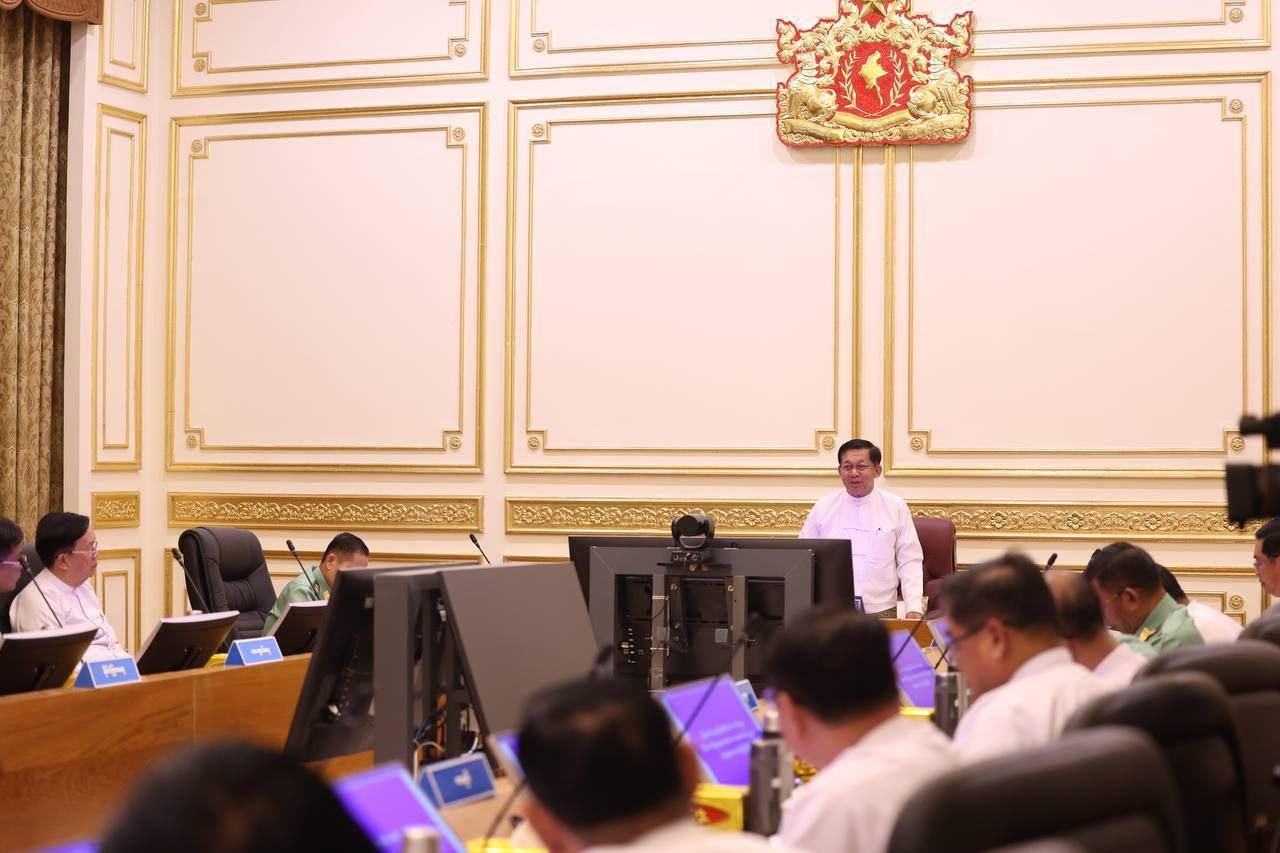
In Myanmar, on February 1, 2021, the Myanmar Military ousted the NLD government, claiming it attempted to form a government without resolving disputes over the 2020 general election voter lists.
Subsequently, the NUG, CRPH, NUCC, PDFs, and several Ethnic Armed Organizations (EAOs) have been striving to topple the Myanmar Military, leading to intense armed conflicts across the country.
Alongside these armed conflicts, there has been an increase in drug prevalence and smuggling within Myanmar. Armed groups have also engaged in the extraction and sale of local natural resources to fund the purchase of weapons and ammunition.
Military and political observers have pointed out that armed organizations are increasingly using the illegal import of drugs, arms smuggling, and the extraction of natural resources for their own personal gain.

- By CNI
- Category: English Section
- Hits: 161
CNI News
10 February 2026
The Kachin Independence Army (KIA) has stated that it must stand guard against the enemy in Sagaing Region, which it considers the “front gate” of its home territory.
Lieutenant General Gun Maw, a senior leader of the KIA, said that this position was conveyed by their side during a meeting with Chinese government officials on February 2. He made the remarks in an online speech commemorating the 65th anniversary of the Kachin Revolution, held in Texas, United States.
Lieutenant General Gun Maw also serves as Vice Chairman (1) of the Kachin Independence Council (KIC), the administrative body of the KIA.
He said: “The Chinese government told us not to engage in fighting. We cannot avoid it. We must carry out military operations together with the democratic forces. Especially in Sagaing Region, which is the front gate of our home compound, we must stand guard against the enemy. We told them on February 2 that ensuring security in Sagaing Region together with local forces, and securing the gateway to Kachin State, is something we must definitely do.”
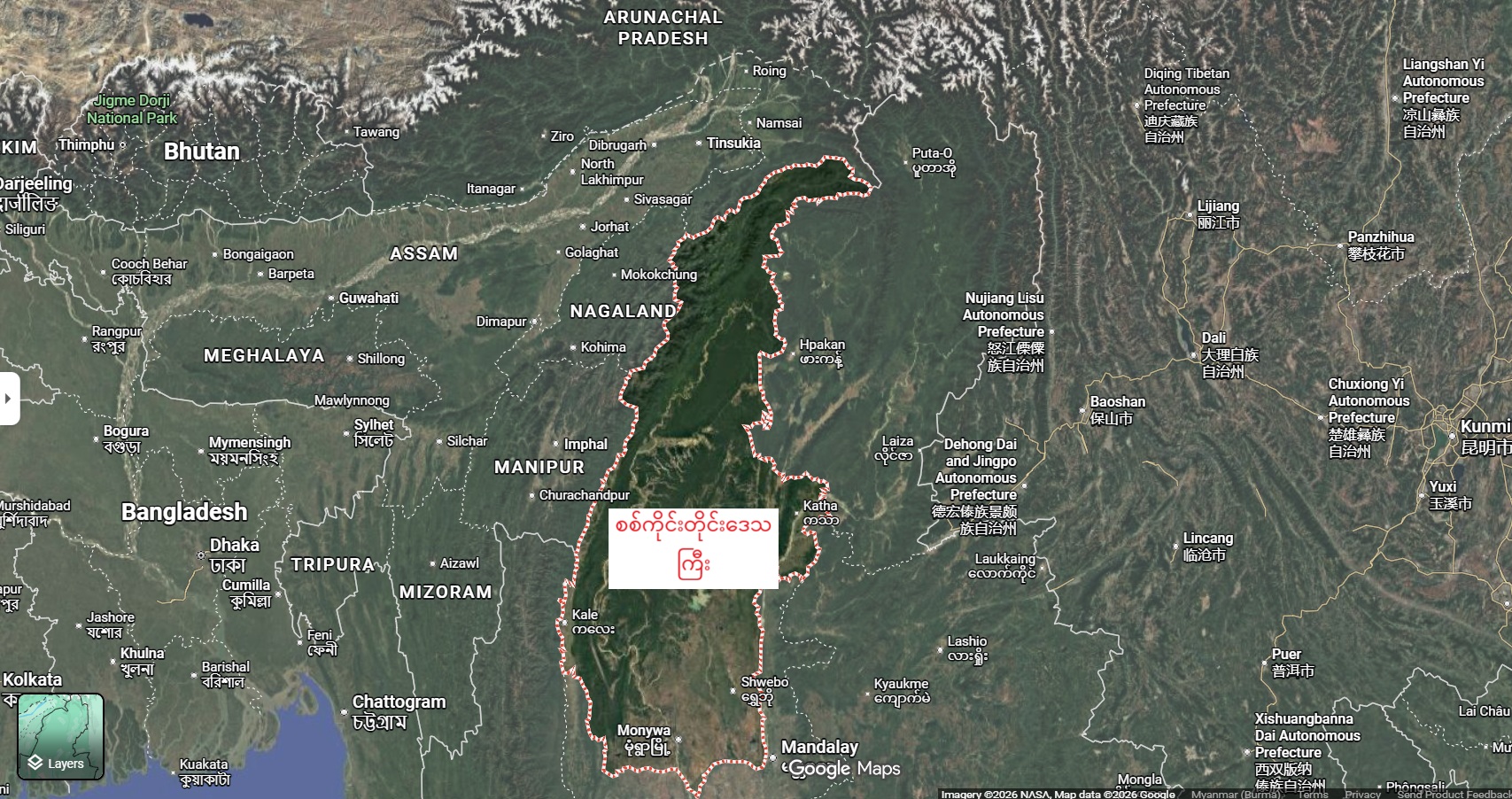
A view of Sagaing Region
He also said that they have asked Naypyidaw whether the National Unity Government (NUG) and the Myanmar military (Tatmadaw) would hold talks, and that the KIA/KIO would not engage in talks as a single individual or single organization.
After the Myanmar military overthrew the NLD government and seized state power on February 1, 2021, the KIA has provided military and political support—including weapons and ammunition—to the NUG and People’s Defense Forces (PDFs) in efforts to overthrow the Myanmar military.
At present, the KIA is supplying weapons and ammunition to PDFs, LPDFs, and other ethnic armed organizations within Sagaing Region and is conducting battles to seize towns.
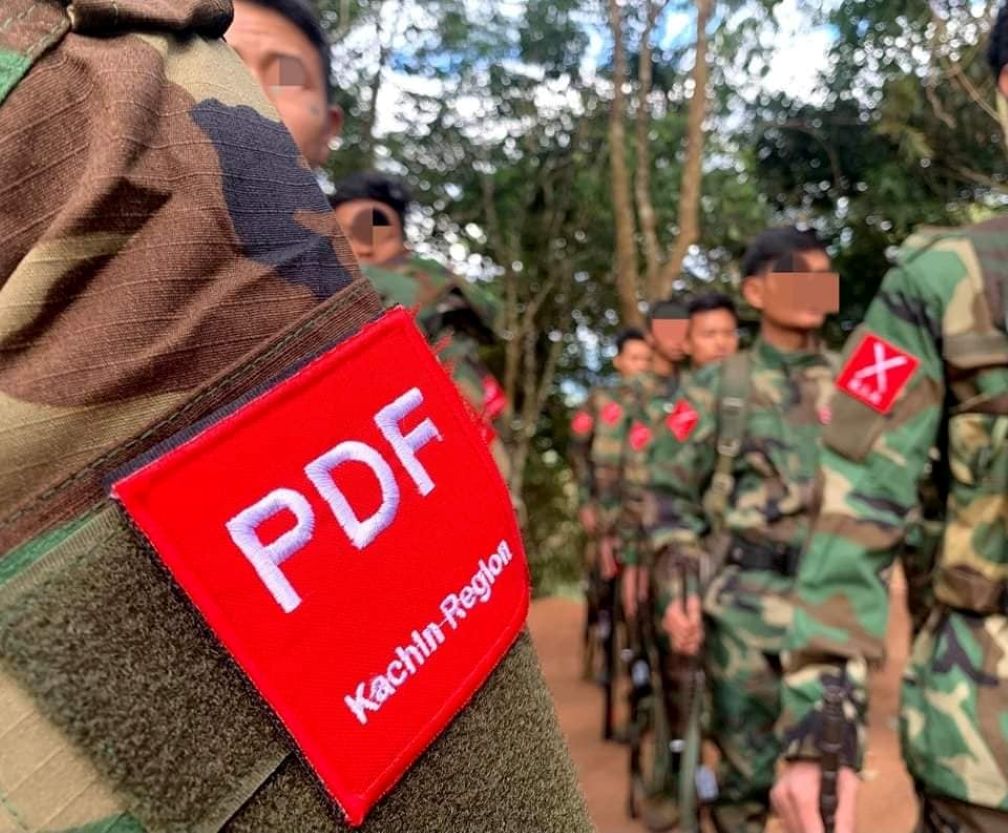
KIA–PDF joint forces
By providing weapons and assistance to local armed groups and other EAOs, the KIA currently controls Indaw Town, Pinlebu Town, and Shwe Pyi Aye Town in Sagaing Region.
Similarly, fighting is ongoing to gain control over Kawlin, Htigyaing, Wuntho, Pale, Yinmarbin, Tagaung, Homalin, Hpaungbyin, Tamu, Kalay, the Naga area, Monywa, Chaung-U, and Shwebo within Sagaing Region.
If the KIA succeeds in controlling Sagaing Region, it will be preparing to apply further military pressure on Mandalay Region and Magway Region. At the same time, it is working to link Rakhine State, Chin State, Sagaing Region, and Kachin State in an effort to achieve liberation across the entire northwestern region.

- By CNI
- Category: English Section
- Hits: 123
CNI News
February 9, 2026
Military and political analysts are weighing in on the potential impact of the Union Consultative Council Law, enacted on February 3, 2026, on Myanmar’s political landscape.
Analysts draw a distinction between the "State Counsellor" role during the NLD era and this new council:
Under the NLD era, the State Counsellor Law focused on an individual (Daw Aung San Suu Kyi) working alongside the President.
According to the current law approved by Acting President Senior General Min Aung Hlaing, this law creates a collective group to work with the President.
Political analyst U An Kaw La told CNI News that a consultative group could make government implementation more effective.
He noted that a single government is insufficient to navigate the current complexities of Myanmar, ASEAN dynamics, and regional power balancing.
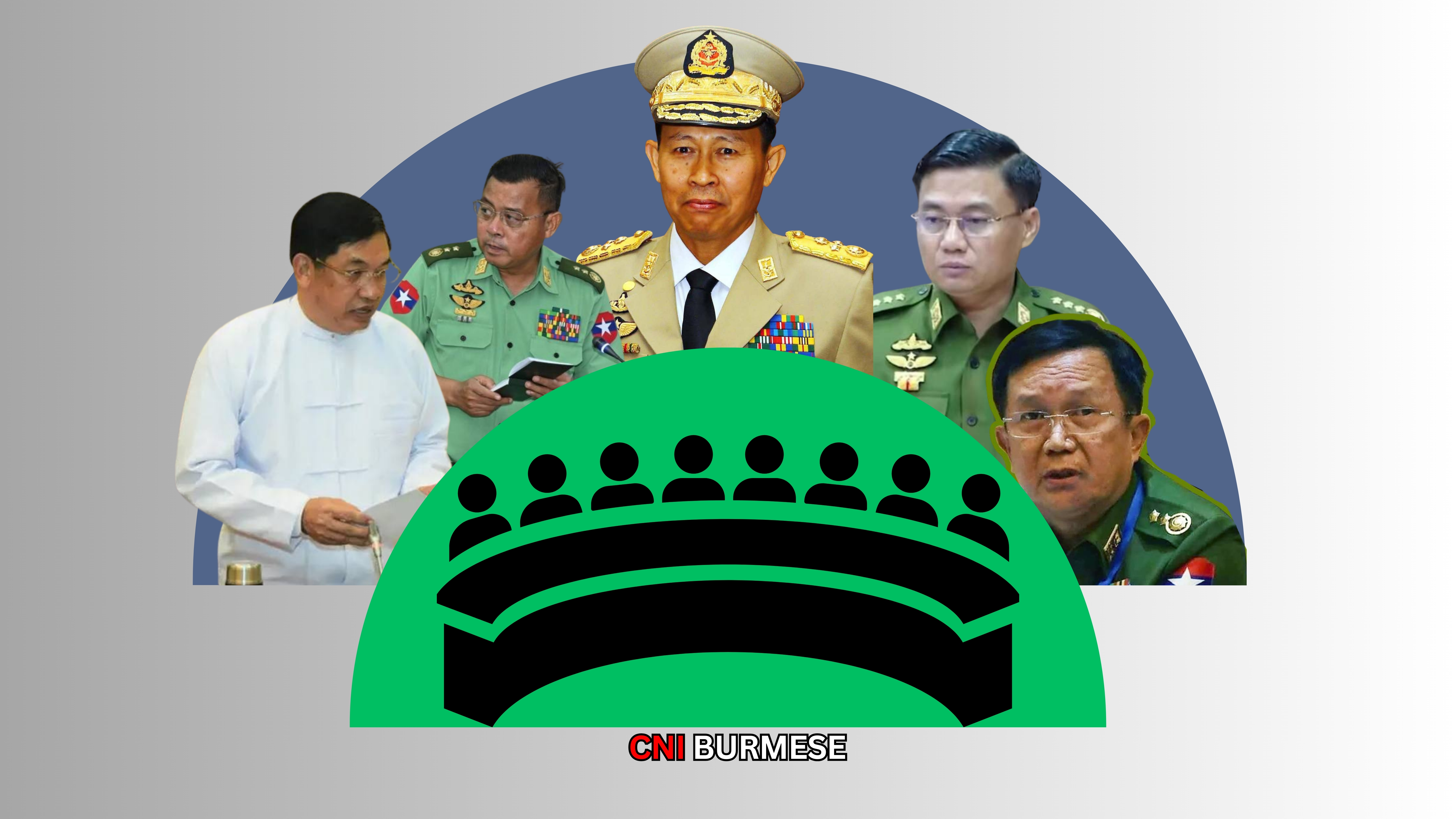
He views the Council as a "State Think Tank" necessary for studying the rapid changes in global policies and strategies.
Having a dedicated counseling body allows the government to focus on implementation while the think tank handles strategic analysis.
Dr. Aye Maung, Chairman of the Arakan Front Party (AFP), suggests this could lead to lasting peace:
He believes the Council will allow for "overlapping" governance, where stability from one 5-year term is handed over to the next.
He argued that if this stability can be maintained through three consecutive 5-year terms, Myanmar could achieve genuine peace, democratic transition, and a federal union.
The law was enacted by the National Defense and Security Council (NDSC) using legislative powers under Section 427 of the Constitution. Key details of the Union Consultative Council Law include:
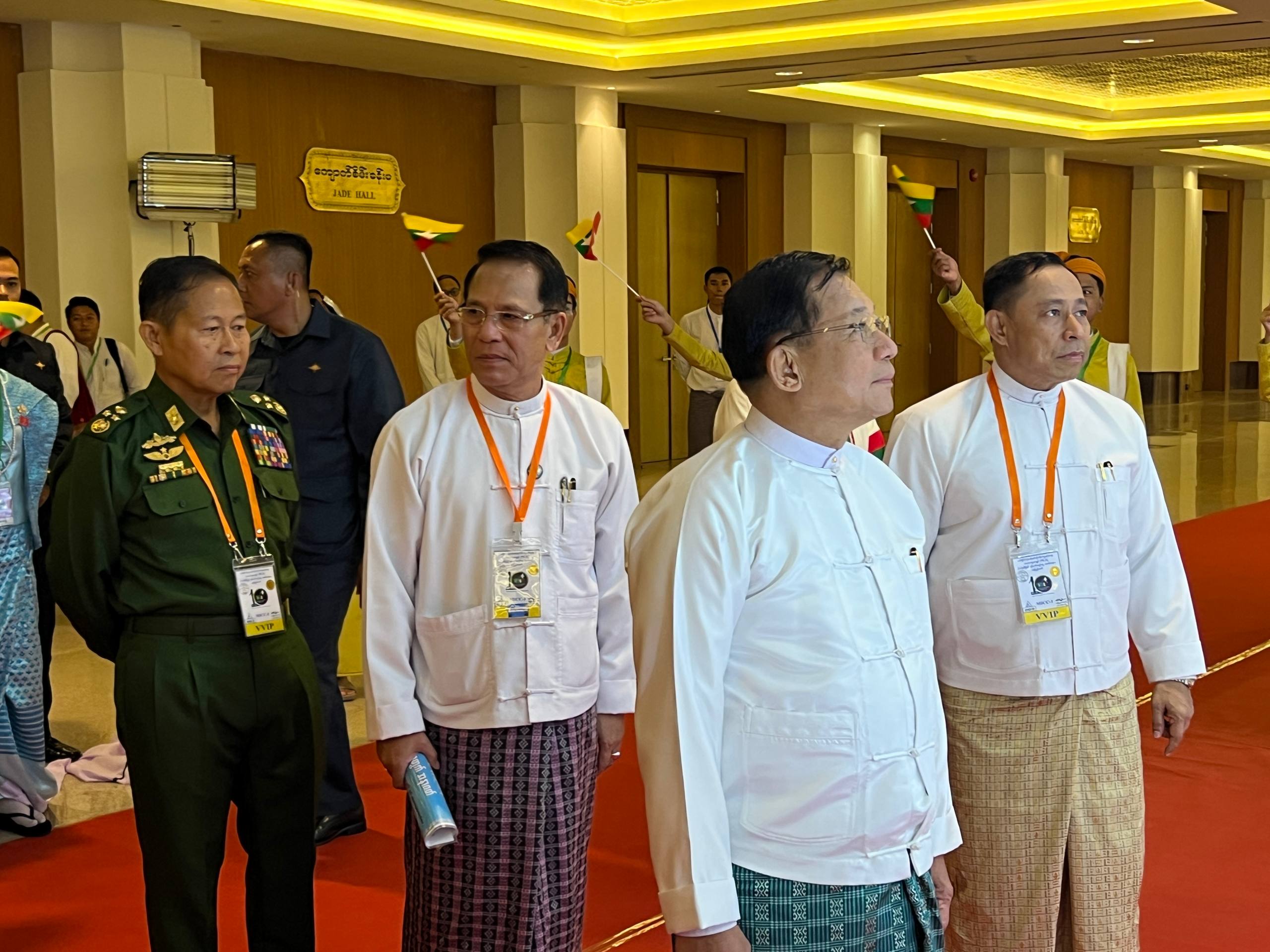
Structure: Contains 4 chapters and 11 sections.
Composition: The President appoints a council of at least 5 members, including a Chairman and a Secretary.
Authority: The President defines the duties and powers of the Council, placing it directly under presidential authority.
Observers speculate that if Senior General Min Aung Hlaing continues as President, the Council's leadership could look like this:
Chairman: Vice-Senior General Soe Win, Secretary: General Ye Win Oo, Members: Likely to be former military officials currently assigned to civilian roles.

- By CNI
- Category: English Section
- Hits: 109
CNI News
9 February 2026
The Myanmar Military (Tatmadaw) and the Shanni Nationalities Army (SNA) have officially announced that they regained full control of Banmauk, a town in Upper Sagaing Region, on February 8, 2026.
On September 15, 2025, the Kachin Independence Army (KIA) and People’s Defense Forces (PDF) launched an offensive to capture Banmauk and KIA-PDF joint forces successfully seized control of Banmauk on September 20, 2025.
After a counter-offensive lasting over four months, the SNA and Myanmar Military reclaimed the area.
According to statements from the Myanmar Military, the operation to retake the town involved: 69 clashes (both large and small scale) against KIA-PDF forces. Seizure of weaponry: 27 assorted firearms, along with ammunition and grenades.
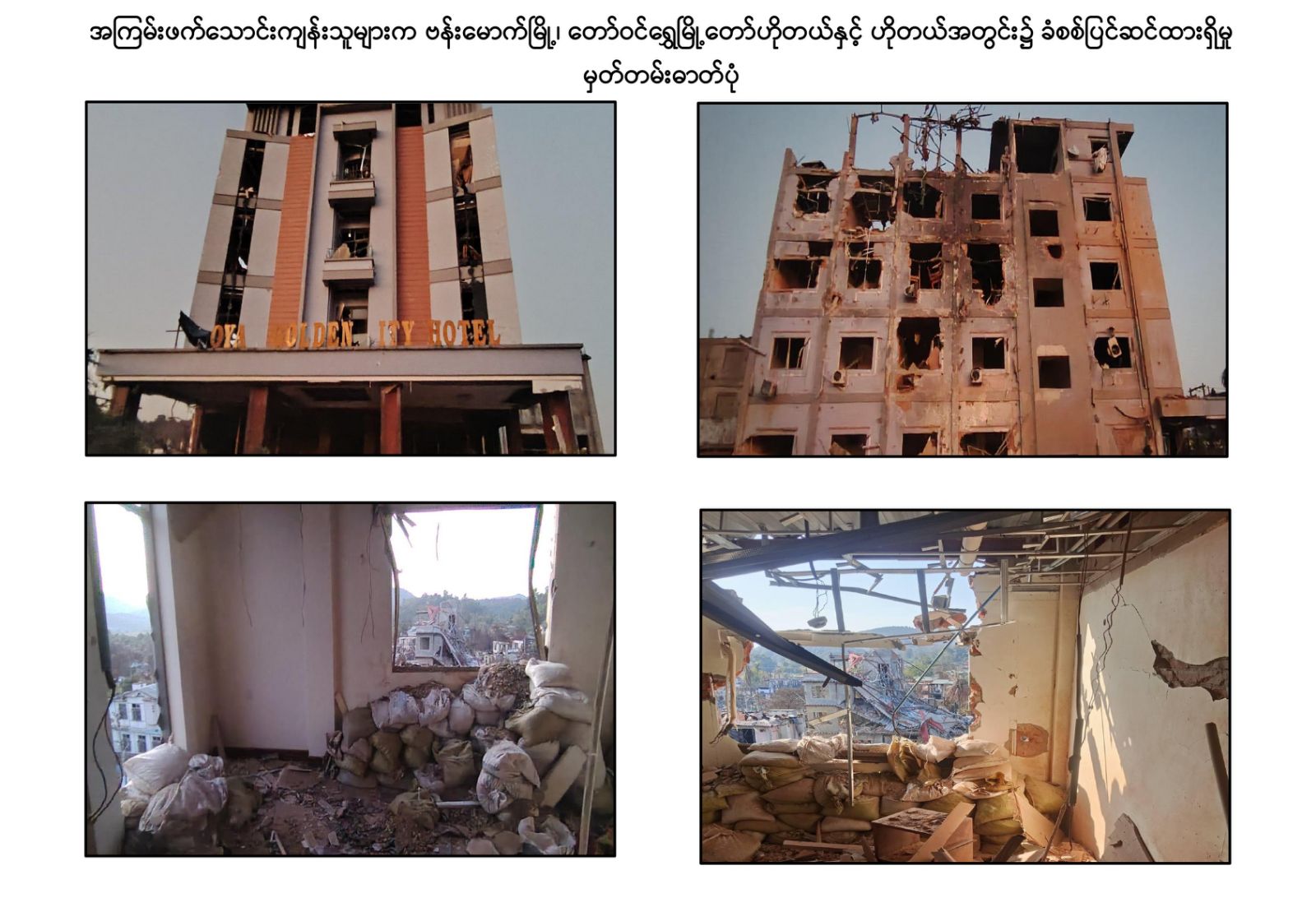
The Myanmar Military’s report alleged that KIA-PDF forces utilized religious buildings, schools, hospitals, government offices, homes, and hotels as fortified bunkers. It further claimed that local civilians were used as "human shields" during the fighting.
Current Situation: Efforts are reportedly underway to: Clear debris and explosive remnants. Facilitate the return of local residents to their homes. Initiate urban reconstruction projects as quickly as possible.



